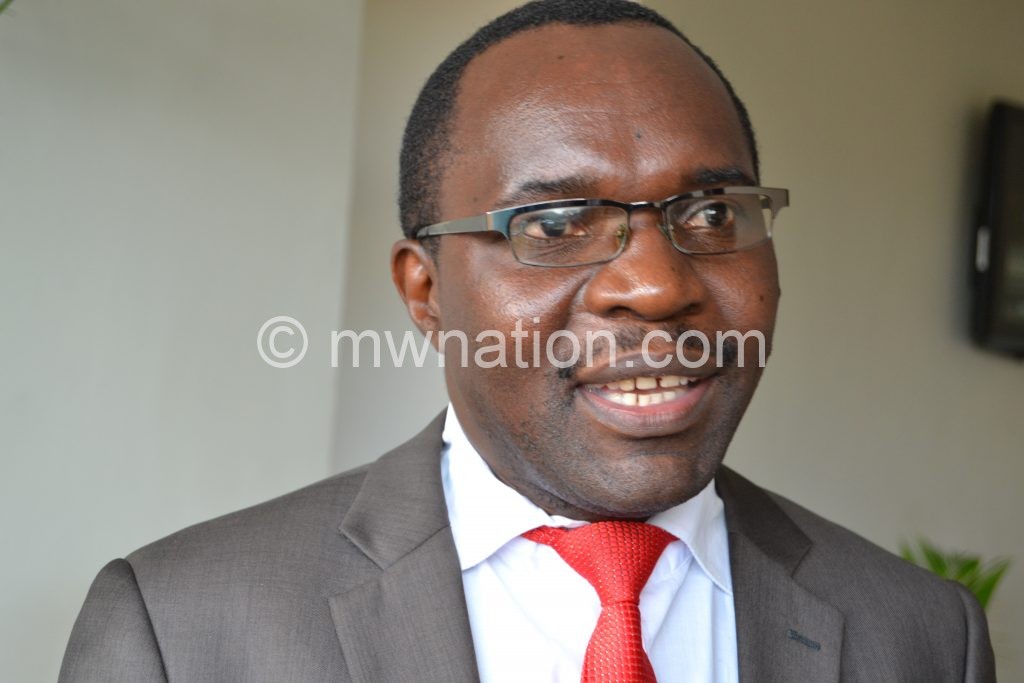Mutharika’s base at war
Ex-president Peter Mutharika’s Democratic Progressive Party is a house on fire following calls for his retirement from politics. Recently, the party summoned its secretary general Gilzelder Jeffrey for saying the party is ready to move forward without him. Our News Analyst MERCY MALIKWA engages political scientist Happy Kayuni, from University of Malawi’s Chancellor College, on the future of the party.

How does a political party’s proper succession plan look like?
Although all political parties in general share same characteristics, it is clear that each political party has certain unique features which emanate from its socio-historical background; hence, the succession strategies may not be exactly the same across parties. However, there are certain general principles that are applicable across political parties.
Firstly, successful succession planning is not a one-off event. Not something being discussed when the incumbent is about to leave office. It should be regarded as a process which develops over several years. When we hear that a political party leader is refusing to step down and using the excuse that their departure would create instability that is a clear sign that the said leader has failed.
Secondly, the ‘big man syndrome’ in political parties gives the impression that he or she is the sole decider of who should succeed him or her, but the appointment of a successor should not be the incumbent’s sole responsibility. The incumbent’s main role is to identify a pool of potential leaders and develop their talent. In other words, the leader ensures that a proper platform is created for those who have potential for leadership. Through this exposure, it is easy for the party to choose its next leader who is deemed more competitive. A leader, therefore, allows a culture of healthy competition to thrive within the party membership and this reduces emergence of factionalism. A health competition exists when individuals demonstrate that they want to succeed and they fight for this goal, but at the same time are not disappointed when they see others succeed, as long as it strengthens their party.
I should also mention that it’s possible for the party to tap resources from outside its rank and file when the transparent succession plan has revealed deficiencies within the party. The problem is that party leaders are worshipped and regarded as the only alternative; hence, no opportunities are created to develop a pool of potential leaders until when it’s too late.
Why do political parties need a clear succession plan?
Firstly, political parties that embrace succession planning are more likely to reinvent themselves when the situation requires them to do so. If they do not have a transparent succession plan, they reinforce the political culture of creating cliques around their party’s supreme leader or an extended family network linked to the party leadership. Ultimately, the party fails to grow, but takes on a regional or tribal identity.
Secondly, studies have shown that new leaders who have emerged through a succession planning process are more likely to be more successful than leaders who have come through other means.
Thirdly, every organisation, including political parties, have formal and informal rules. Both have advantages and disadvantages. When informal rules become the dominant defining element, the organisation is unlikely to objectively identify potential leaders with talent and there is less predictability as well as much infighting. Succession planning ensures that informal rules do not become the dominant characteristic feature of the party.
How best can political parties free themselves from being platforms of a select few individuals?
Party members should strengthen accountability systems within political parties and not take their leaders as gods. What has reinforced this problem is what we call ‘rent-seeking behaviour’ within parties. Some individuals join politics to make money. When the leader has a lot of money that he liberally gives them, they do not question his decisions; hence, the identity of the party is synonymous with the leader and his or her family members.
Political leaders tend to handpick their loyalists to their politburos or national executive committees. How does this affect democracy within the party?
This behaviour closes off entry of potential talented leaders. As a result, it is very difficult for the party to reinvent itself to suit the changing socio-political environment.
In the aftermath of Mutharika’s loss in June 23 rerun presidential election, some DPP top brass are petitioning hard for Mutharika to step down and pave the way for rebuilding. How important is this?
This is important but it must be done systematically. Several previous opinion polls have shown that Mutharika’s popularity has been going down, so he is not a leader that may assist in rebuilding the party. If a new leader is identified through a proper democratic process, Mutharika’s role would be to demonstrate that he fully supports the new leadership. This will provide some legitimacy and acceptability that the new leadership may need in the party’s rebuilding process.
If you had a chance to meet with DPP executives, what would you tell them?
Political parties need to take the issue of succession planning seriously. The idea of worshipping leaders, as if they will continue ruling forever, must stop. A culture of healthy competition should thrive within political parties, which ultimately reduces factionalism.





